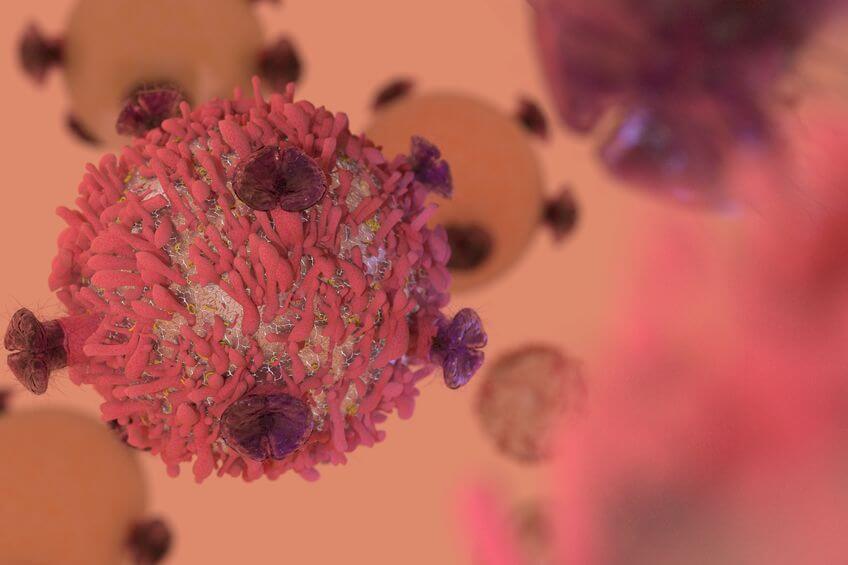Fighting Lung Cancer with Precision Warfare
A brief account on how lung cancer therapies evolved from basic chemotherapies to point mutation specific precision therapies and biomarker driven immunotherapy. And what lies in the future if one decides to combine the best of both worlds.
“All cancers are alike but they are alike in a unique way” – Emperor of All Maladies: A Biography of Cancer [1]
By Ajay Vitthal Patil, PhD
Indeed, to find the perfect model to study or even to discuss cancer is difficult. It varies with the aspect in focus; prevalence, mortality, progression free survival (PFS), precision therapy, severity – one can study and classify cancer using any of these parameters.
Lung cancer – Case in point for advanced stage malignancies
Lung cancer in today’s time forms a good model to study the impact of precision medicine and immunotherapy in oncology. Lung cancer is on top of the chart in worldwide indices of mortality and prevalence. Among lung cancer patients, small cell lung cancer (SCLC) comprises about 20% while non-small cell lung cancer (NSCLC) comprises the remaining 80% cases [2]. The treatment options based on the stage of diagnosis mainly include traditional chemotherapy, surgical resections, precision therapy with reference to mutation profile and immunotherapy options.
Thymidine kinase inhibitors (TKIs) – Onset of the precision therapy
There has always been tussle of studies on various treatment options in lung cancer. Such discussions usually start with thymidine kinase inhibitors like Afatinib, Erlotinib, Gefatinib which improved the treatment compared to traditional chemotherapy. However, many patients will eventually develop resistance after the first-line treatment was given primarily due to resistance mutations such as EGFR (T790M).
Third generation TKIs and countering resistance
The third generation TKIs, Osmertinib, showed better results over Erlotinib or Gefitinib in recent FALURA trials. It was particularly important because, those patients initially treated with other first- line options and found positive for resistance mutations like T790M EGFR could be treated with relatively favorable results. Patients with central nervous system (CNS) metastasis comprise a large percentage of NSCLC which were also found to benefit more from Ostmertinib [3,4]. This gave rise to the era of mutation profiling based precision therapy. Now most research centers perform extensive panel analysis for driver gene mutations including EGFR, ALK, MET, BRAF and ROS1. Other targeted mutations are also included in the panel to avoid missing out on less frequent but potentially targetable mutations [3]. Such mutation driven precision therapies are primarily effective in non-squamous cell lung cancers. This leaves out large fraction of patients who do not have these driver mutations, including most of the squamous cell lung cancer patients.
Immunotherapy – Dealing no mutations
Immunotherapy is already known as an important section of treatment in the form of monoclonal antibodies but ‘cell based immunotherapy’ radically changed traditional approach of treating cancer in recent years. Breakthrough discoveries of immune checkpoint therapies, engineered “chimeric antigen receptor T cell (CAR-T)” have shown promising results against certain cancers, although the response rate for these therapies is still low. According to industrial experts, “the first generation products in this class could disappear completely as soon as 5 to 6 years down the line, and improved versions of them will emerge more efficiently.” [6]

Checkpoint immunotherapies
Tumor infiltrating lymphocytes form an integral part of anti-tumor immune response. Numbers of tumor infiltrating lymphocytes have been positively correlated with better clinical outcomes. Immune checkpoint proteins are surface proteins which either inhibit or stimulate the function of tumor specific T cell lymphocytes. In 2011, FDA approved the first immune checkpoint antibody against CTLA4 for the treatment of melanoma [5]. Followed by that in 2014 anti-PD1 antibody Nivolumab (Opdivo) from Bristol Mayers Squibb (BMS) was approved to treat melanoma, lung cancer, kidney cancer, bladder cancer, head and neck cancer, and Hodgkin’s lymphoma [5]. This was followed by another anti-PD1 antibody approval – Pembrolizumab (Keytruda) from Merck. By far, for these drugs the clinical data reveals – type of cancers which can be targeted by monotherapy and response rates in some cancers [5,6].
Compatibility with first line therapies – Reliable combinations
Detailed overall survival (OS) and PFS data from various combination clinical trials using Keytruda and Opdivo was recently revealed in ASCO 2018 [7,8]. PD1 and PDL1 are being followed as important biological targets by other players including Genetech and GSK [9]. The treatment of advanced stage tumors with these anti-PD1/PDL1 inhibitors is critically dependent upon tumor expression of PDL1 in these patients. These treatments are mostly preferred as second line treatments excluding few exceptions [5,6].
The biomarker expression is a key to its low response rates. Currently a great deal of academic research and industry preclinical research is propelling other immune checkpoint inhibitors against LAG3, Tim3, OX40, closer to clinical stages. Hence, in the coming 5 to 10 years, we are likely to witness greater impact of immunotherapy options on lung cancer treatment.
Breakthrough on the horizon
Along these lines other advanced immunotherapy options like CAR-T are slowly progressing to their second versions and obtaining FDA approvals [6]. But there is still a long way to go for these therapies to establish themselves as dependable combination therapies or as reliable alternatives to traditional approaches.
References
- The Emperor of All Maladies – Dr. Siddhartha Mukherjee. ISBN:978-1-4391-0795-9
- SEER Cancer Statistics Review, 1975-2014, National Cancer Institute. Bethesda, MD, https://seer.cancer.gov/csr/1975_2014/, based on November 2016 SEER data submission, posted to the SEER web site, April 2017.
- JAMA Oncol. 2018;4(4):569-570. doi:10.1001/jamaoncol.2017.5190
- Pharmacol Ther. 2018 Jun;186:130-137. doi:10.1016/j.pharmthera.2018.01.003
- J Clin Invest 125(9): 3384-3391.Clin Cancer Res. 2015 May 15; 21(10): 2213–2220. doi:10.1158/1078-0432.CCR-14-2748
- Brad Loncar’s ASCO18 preview: Past ASCOs point to the top drugs that will soon elbow for the Oscars of cancer R&D
- https://news.bms.com/press-release/corporatefinancial-news/opdivo-plus-chemotherapy-showed-improved-progression-free-surv
- http://investors.merck.com/news/press-release-details/2018/Mercks-KEYTRUDA-pembrolizumab-Plus-Chemotherapy-Significantly-Improved-Overall-Survival-in-First-Line-Treatment-of-Metastatic-Squamous-Non-Small-Cell-Lung-Cancer-in-Phase-3-KEYNOTE-407-Study/default.aspx
- Oncoimmunology. 2012 Nov 1; 1(8): 1223–1225. doi: 10.4161/onci.21335
©www.geneonline.com All rights reserved. Collaborate with us: service@geneonlineasia.com









